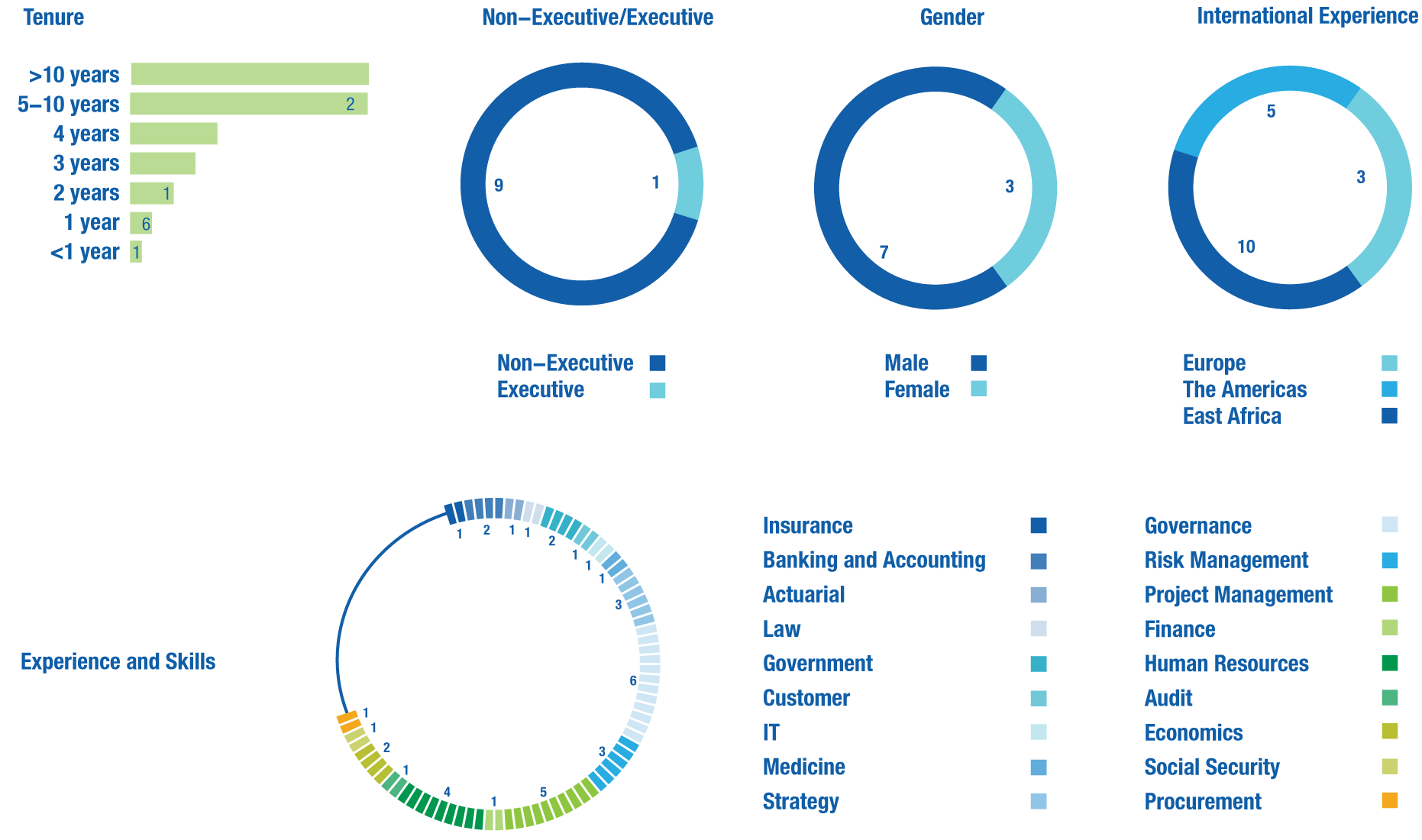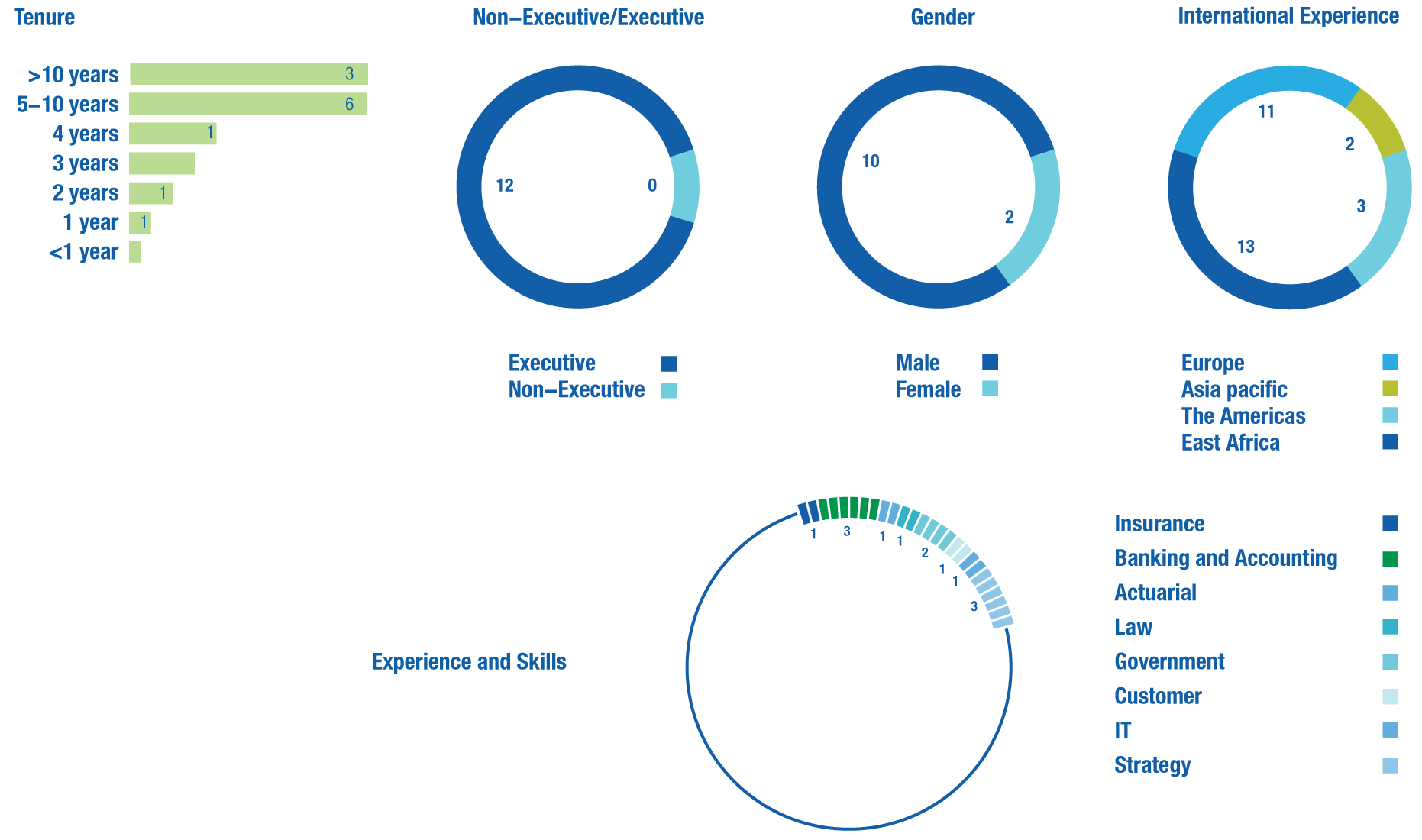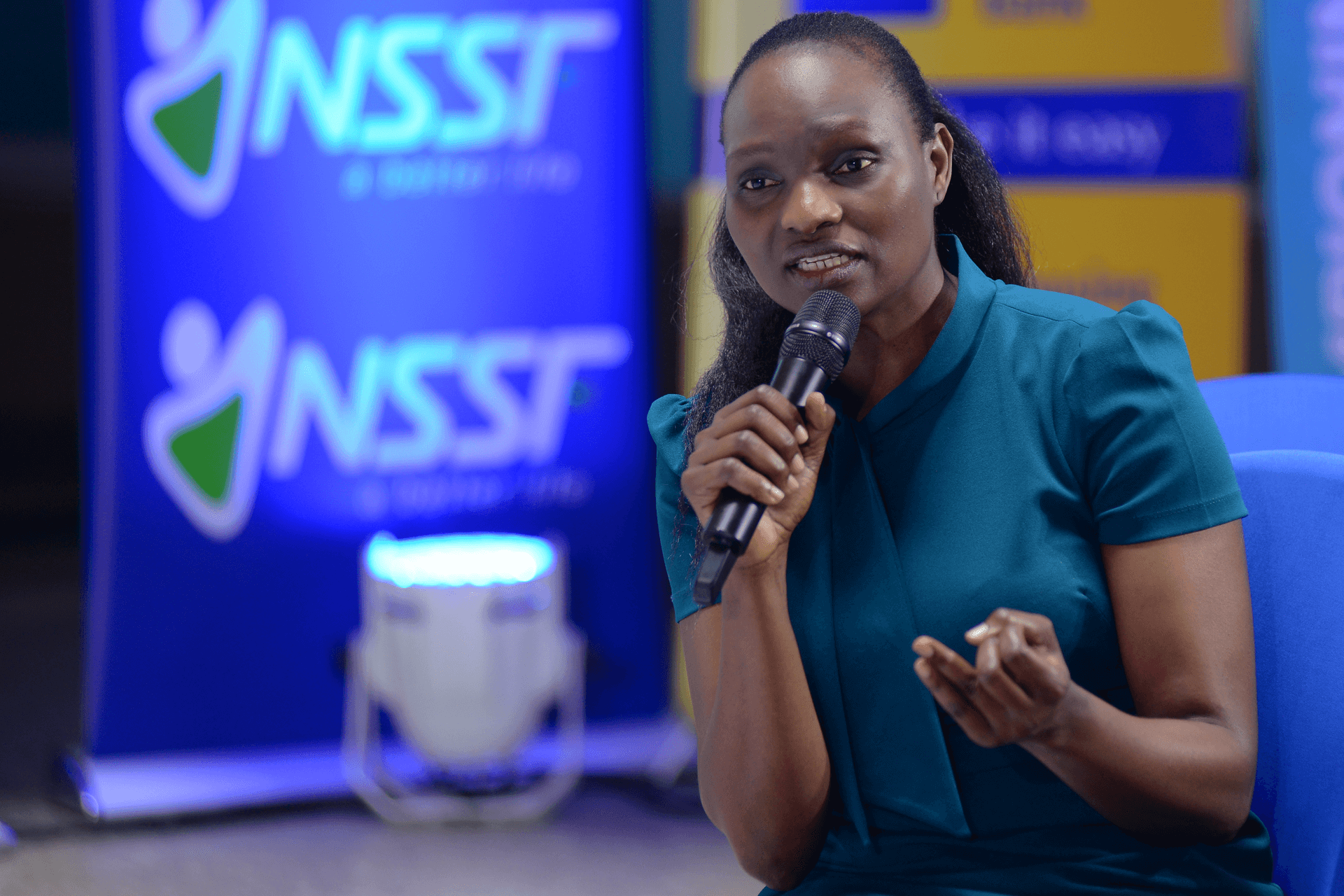OUR GOVERNANCE
Corporate governance aligned to King IV principles
PRINCIPLE 7: COMPOSITION OF THE BOARD

King IV principles and our activities
GOVERNING STRUCTURES AND DELEGATION
Outcomes
Composition of the Board
The Board comprises Directors with a wide variety of skills and experience to effectively lead the strategic direction of the Fund. The 12th Board is diverse and balanced.
Independence
As of 30 June 2023, eight of the Non-Executive Directors were independent as defined in the governance codes and our Board Charter which represents 88% of the Board.
Directors are required by the Board to be independent of Management and free from any business relationship or other circumstance that could materially interfere with objectivity, unfettered or independent judgement. The independence of each Director is assessed annually by the Board as part of its annual Board Effectiveness Review and in conducting its current assessment, it was concluded that all Directors continue to bring strong independent oversight and demonstrate those qualities and behaviours it regards essential to be considered independent as set out in their terms of reference and Board Charter.
Board composition and tenure
The Chairman is independent and in line with best practice, his roles are separate from those of the Chief Executive Office.
Board appointments and resignations
The Minister responsible for Social Security, currently the Minister of Gender Labour and Social Development, appoints Directors for a three-year renewable term. Appointment of Directors is subject to a due diligence and approval of the Regulator (URBRA), as applicable. The MD is recommended by the Board and appointed by the Minister. Under section 3(4) of the NSSF Act, a Director may, by writing in his/her own hand a letter addressed to the Minister of Gender, resign his/her office.
During the year under review, Mr. Patrick Micheal Ayota was appointed to the Board as an Executive Director in an acting capacity following the end of tenure of Mr. Richard Byarugaba’s contract.

Board Inauguration
Board Composition
Chairperson
Executive Director
Non-Executive Directors
Main Board

skills and experience - Board

Skills and experience - Exco
We believe in having a diverse leadership team regarding experience, skills, tenure, geographical expertise, professional background, and gender as illustrated below:

Director induction, training, and development
In addition to Directors’ attendance at meetings and review of relevant materials provided by Management during the year, they attended professional training to enhance their skills and knowledge as set out below:
Board Training and Attendance |
|||
|---|---|---|---|
| Title | Date | Members | Training details |
| Board Advisory NSSF-International Board Excellence Programme | 3 – 6 October 2022 |
|
The programme was specifically designed to support the NSSF board of directors in the execution of their fiduciary responsibilities. Following the conclusion of the programme, Board Advisory designed a number of supporting interventions to assist the NSSF Board on its ongoing journey to Board Excellence. The key outcomes of the training were:
|
| World Social Security Forum Board and Management Strategy Session |
24 – 28 October 2022 |
|
|
| Advanced Auditing for Board Members of the National Social Security Fund, Uganda | 17 October - 5 November, 2022 |
|
|

Continuous Professional Development Programme
As part of the Continuous Professional Development Programme, the Board members from time to time receive presentations from senior executives in the Fund on significant matters. The Fund also arranges appropriate regional branch visits and seminars covering the Fund's operations, the industry and governance matters for the Directors to facilitate their understanding of the Fund business and risks associated with the Fund’s operations.
The Board and Management also periodically meet to discuss the strategy of the Fund and how best it can be aligned to the needs of the members.
Continuous development of the Board and Management remains a key area in a bid to improve corporate governance. This has enhanced the level of reporting by Management to the Board, thus strengthening leadership capability and focusing on strategic issues.
The Assurance Departments continue to work together to strengthen collaboration of the assurance functions in executing their assurance roles, but at the same time not impairing their independence.
Board Management Relationships

The Board appoints the Fund’s senior management/Executive Committee. The Board is responsible for succession planning for key management roles. During the year, the Board considered and approved the contract renewal of senior managers.
The Board further reviewed the management composition and succession planning to ensure that the successors for key roles, including that of the MD and Deputy MD, are identified and their performance assessed.
